Episodes
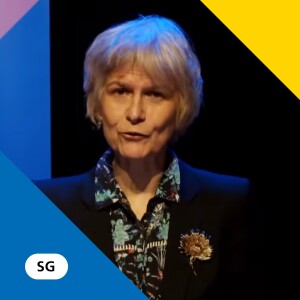
Friday Sep 03, 2021
Wat leert Foucault ons over macht?
Friday Sep 03, 2021
Friday Sep 03, 2021
Toen filosoof prof. Marli Huijer (EUR) aan het begin van de coronapandemie zag wat voor ingrijpende maatregelen de overheid nam, dacht ze: waar heb ik dit eerder gezien? Ze moest denken aan ‘Discipline, toezicht en straf’, een boek van de Franse denker Michel Foucault uit de jaren 70. Daarin beschreef hij hoe macht door de eeuwen heen is veranderd. Wat als we door Foucaults ogen kijken naar deze tijd?
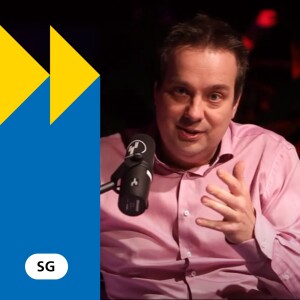
Sunday Aug 08, 2021
Science Session: Waarom we de macht van grote bedrijven moeten beteugelen
Sunday Aug 08, 2021
Sunday Aug 08, 2021
Ondanks de ongekende economische schade die de coronacrisis aanricht, blijven aandeelhouders van grote bedrijven profiteren, zonder dat er extra geld naar de rest van de samenleving doorstroomt. Filosoof prof. Rutger Claassen (Universiteit Utrecht) gaat in op de vraag wat er nodig is om de uitwassen van het kapitalisme te beteugelen en de winsten van bedrijven eerlijker te verdelen. Kunnen we multinationals dwingen meer publieke verantwoordelijkheid te nemen?

Thursday Jul 22, 2021
Het nachtkastje van... #2: dr. Tessa Diphoorn
Thursday Jul 22, 2021
Thursday Jul 22, 2021
Het nachtkastje van… is een podcast van Studium Generale van de Universiteit Utrecht, waarin we verschillende wetenschappers spreken over inspiratiebronnen die hun gemaakt hebben tot de wetenschapper die ze nu zijn. Die ze altijd bij zich dragen en zomaar op hun nachtkastje zouden kunnen liggen.
In deze aflevering spreken we met dr. Tessa Diphoorn, cultureel antropoloog aan de Universiteit Utrecht. Diphoorn heeft jarenlang onderzoek gedaan naar particuliere beveiliging in Zuid-Afrika, Kenia, Israel en Jamaica, om meer inzicht te krijgen in de complexe dynamiek tussen veiligheid, autoriteit en geweld. In deze aflevering vertelt ze over haar inspiratiebron: het boek In Search of Respect van Philippe Bourgois.
Deze aflevering op onze site luisteren? Ga naar sg.uu.nl/podcast

Sunday Jul 11, 2021
Hoe we een tweede ’silent spring’ kunnen voorkomen
Sunday Jul 11, 2021
Sunday Jul 11, 2021
Verdwenen vogelgeluiden, verwelkte planten en een vervuilde bodem. In de jaren '60 waarschuwde bioloog Rachel Carson in haar boek Silent Spring voor de verwoestende effecten van chemische bestrijdingsmiddelen op de natuur. De bestseller wordt ook wel als het begin van de milieubeweging gezien. Zestig jaar later is het pesticideprobleem nog steeds niet opgelost. Milieukundige dr. Jerry van Dijk bespreekt Carsons klassieker. Waarom zijn we nog maar zo weinig opgeschoten? En wat verhindert een échte omwenteling?
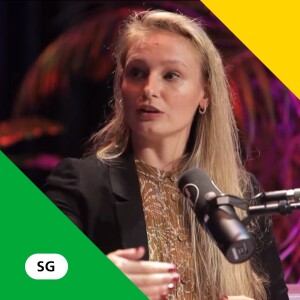
Saturday Jun 19, 2021
Science Session: Windmolen in je backyard?
Saturday Jun 19, 2021
Saturday Jun 19, 2021
Nederland wordt steeds groener. Windmolenparken schieten als paddenstoelen uit de grond en zonnepanelen zijn niet langer een uitzondering. In een jaar tijd wekken we dubbel zoveel duurzame energie op en de komende jaren moet dit alleen nog maar groeien. Toch klinkt er steeds vaker protest. We zijn massaal voor windenergie, maar niet ten koste van ons uitzicht en de mogelijke schadelijke gevolgen voor de gezondheid. Wat is het weerwoord van burgers waard? Hoeveel invloed hebben zij op de politieke besluitvorming? En hoe kunnen we een duurzame energietransitie waarborgen zonder verzet?
Een gesprek met politicoloog en jurist dr. Sanne Akerboom van de Universiteit Utrecht.
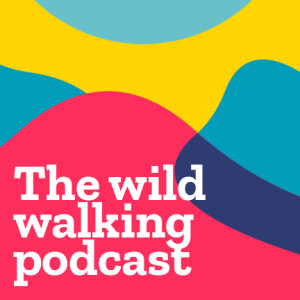
Thursday Jun 10, 2021
The wild walking podcast
Thursday Jun 10, 2021
Thursday Jun 10, 2021
Nietzsche, Rousseau and Kant were all avid walkers. Why?
This is a podcast to listen to during a walk of about half an hour. Put on your headphones, and your walking shoes, and hit the road with botanical philosopher Norbert Peeters. Why is walking the ultimate philosophical activity? Is there still wild nature to be discovered in the city?
The accompanying route guides you through the Zocherpark, and along the Old Botanical Garden and the city's canals. It starts and ends on the Domplein. You can download the map on our website. Of course, you can also create your own route.
Composed/arranged by Sonny Fascia.
Audio From: https://edinburghrecords.com
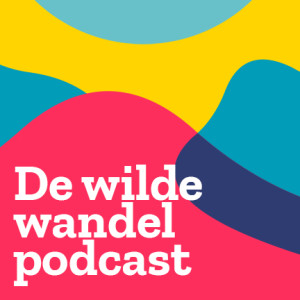
Thursday Jun 10, 2021
De wilde wandelpodcast
Thursday Jun 10, 2021
Thursday Jun 10, 2021
Een podcast om te luisteren tijdens een wandeling van ongeveer een half uur. Zet je koptelefoon op, trek je loopschoenen aan ga op pad met botanisch filosoof Norbert Peeters. Waarom is wandelen de ultieme filosofische activiteit? En is er nog wilde natuur te ontdekken in de stad?
Sound Effect: Birds in the Garden Sounds – BurghRecords
Composed/arranged by Sonny Fascia.
Audio From: https://edinburghrecords.com

Sunday May 23, 2021
Het nachtkastje van... #1: prof. Liesbeth Woertman
Sunday May 23, 2021
Sunday May 23, 2021
Het nachtkastje van… is een podcast van Studium Generale van de Universiteit Utrecht, waarin we verschillende wetenschappers spreken over inspiratiebronnen die hun gemaakt hebben tot de wetenschapper die ze nu zijn. Die ze altijd bij zich dragen en zomaar op hun nachtkastje zouden kunnen liggen.
In deze aflevering spreken we met prof. dr. Liesbeth Woertman, emeritus hoogleraar psychologie aan de Universiteit Utrecht. Sinds haar promotieonderzoek in 1994 doet Woertman veel onderzoek naar het onderwerp “lichaamsbeeld”. Ze schreef daarover verschillende boeken, waaronder het in 2019 uitgebracht boek Je bent al mooi. De schoonheid van imperfectie over de onrealistische lichaamsbeelden in de media. In deze aflevering vertelt ze over haar inspiratiebron: Sinterklaas.
Deze aflevering op onze site luisteren? Ga naar sg.uu.nl/podcast
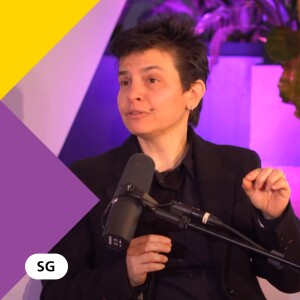
Monday Feb 15, 2021
Science Session: De staat van de VS
Monday Feb 15, 2021
Monday Feb 15, 2021
Een betwiste verkiezingsuitslag, een razende pandemie en groeiende tegenstellingen: de uitdagingen voor de nieuwe Amerikaanse president Joe Biden zijn allesbehalve klein. Wat kan Biden bieden aan dit tot op het bot verdeelde land?
We spreken met Markha Valenta. Amerikanist aan de Universiteit Utrecht en onderzoeker bij het NIAS. Hoe kijkt zij naar het land dat ze zelf twintig jaar geleden verliet, in deze tumultueuze tijden? En wat kunnen wij in Nederland leren van de Amerikaanse situatie?
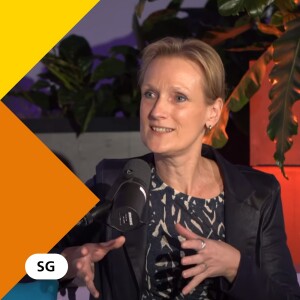
Monday Feb 15, 2021
Science session: Hoe versterk je je veerkracht?
Monday Feb 15, 2021
Monday Feb 15, 2021
Een crisis vraagt om mentale veerkracht, maar dat is niet vanzelfsprekend. Hoe versterk je je veerkracht?
Een beetje veerkracht kunnen we allemaal wel gebruiken in deze onzekere tijden. Met steeds veranderende maatregelen moeten we immers flexibel zijn. Maar ook buiten corona om staat veerkracht sterk in de belangstelling. Onze levens worden steeds stressvoller en de burn-out is een veelvoorkomende beroepsziekte. Zijn sommige mensen veerkrachtiger dan anderen, of kunnen we allemaal onze veerkrachtspier trainen? Een gesprek met psycholoog dr. Richta Ijntema (UU).

